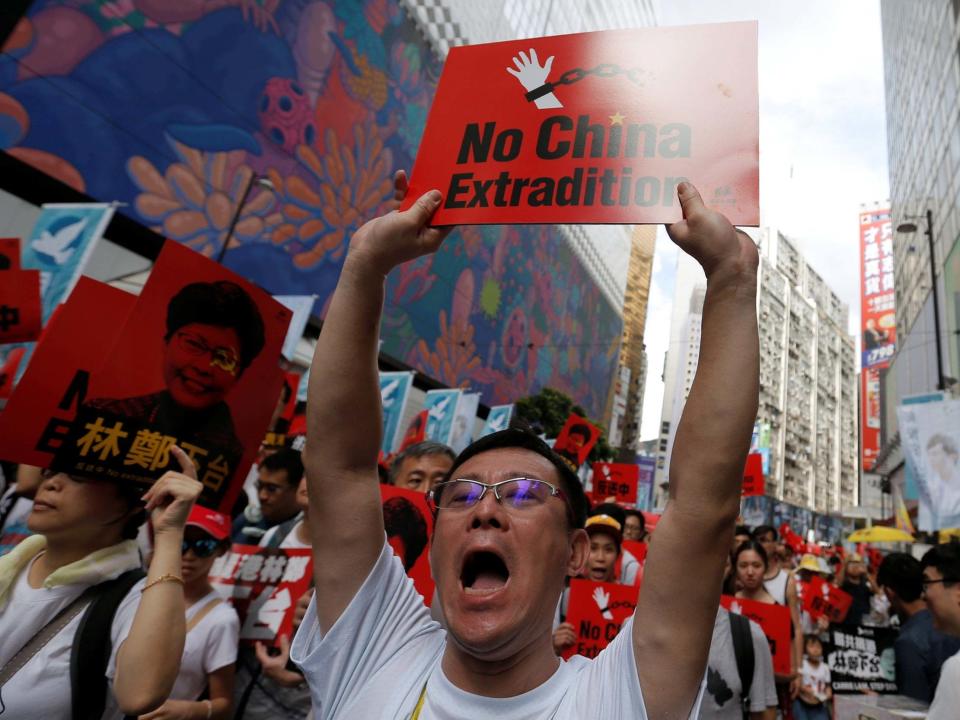Hong Kong protests: More than one million people join rally against China extradition bill, organisers say
More than one million people have joined a mass protest in Hong Kong against a government-sponsored extradition bill with mainland China, according to organisers.
Protesters are opposing legislation that would allow people to be extradited to mainland China for trial, which critics fear would let the Chinese government snatch political opponents in the territory with impunity.
Hong Kong, which has a population of 7.4 million people, is a semi-autonomous region in China with its own devolved political and judicial powers.
The protest took place three days before Hong Kong’s government plans to bring the bill to the full legislature, bypassing the committee process, in a bid to win approval by the end of the month.
Late Sunday night, a group of demonstrators broke through barriers at government headquarters, where the march had ended. The crowd briefly pushed its way into the lobby, but police in riot gear used batons and pepper spray to push the protesters outside.
The organiser’s turnout figure would make it one of the largest protests in Hong Kong’s history, surpassed only by a rally of an estimated 1.5 million people for the Tiananmen Square protests in 1989.
A police spokesperson estimated 240,000 people were on the march “at its peak”.
The scale of the protest has increased pressure on Hong Kong’s leader Carrie Lam and her supporters in Beijing.
“She has to withdraw the bill and resign,” James To, a veteran lawmaker for the Democratic Party, told crowds gathering outside the city’s parliament and government headquarters on Sunday night.
“The whole of Hong Kong is against her.”
Businesses and human rights groups have criticised the legislation, arguing Hong Kong’s legal autonomy is being eroded and that China’s legal system would not guarantee the same rights to defendants as in Hong Kong.
US and European officials have issued formal warnings that the changes would damage Hong Kong’s rule of law.
Nevertheless, Ms Lam has pushed forward with the proposal, insisting that Hong Kong courts will have the final say over whether to grant extradition requests and suspects accused of political and religious crimes will not be extradited.
“What can we do to get Carrie Lam to listen to us, how many people have to come out to make her reconsider listening to the public?” said Miu Wong, a 24-year-old office worker who joined the protest.
“This is the end game for Hong Kong, it is a matter of life or death. That’s why I come,” said Rocky Chang, a 59-year-old professor. “This is an evil law.”
Hong Kong is a former British colony that was returned to Chinese rule in 1997 under the “one country, two systems” framework which allows some independence to the region.
It has extradition treaties with 20 countries, such as the UK and US, but no agreement has been reached with mainland China despite decades of negotiations.
The lack of an extradition deal is attributed to concerns over China’s poor record on legal independence and human rights.
Ms Lam’s government has argued that the revisions are necessary to close a legal loophole which is thought to have allowed Hong Kong to become a haven for criminals from mainland China.
Agencies contributed to this report



